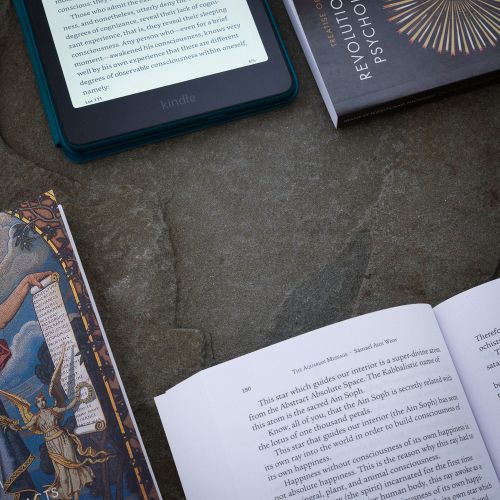Society has many definitions for happiness, but none of them are genuine. We believe we are happy when we get what we desire, but that happiness quickly fades and a new desire emerges.
Real happiness is a state of consciousness and is not dependent upon external circumstances. That is, possessions are not the cause of happiness. All possessions are subject to loss, decay, and theft; they are impermanent and therefore unreliable.
Friends, acclaim, popularity, power, and all of the goals of this modern age do not bring happiness, because all of them are impermanent and unreliable. We take none of them when we die, and we will die.
For happiness to be genuine, it should not be dependent upon an unreliable foundation. Modern society believes that happiness is produced when we wear the latest fashion, drive the newest car, have the highest paying job, or we are feeding whichever desire happens to be strongest in us. Yet, this point of view is not only unrealistic, it is foolish. Genuine happiness can never be found through dependence upon unreliable, impermanent objects, people, or sensations. Nothing external can provide lasting happiness, thus the happiness they provide is shallow, brief, and ultimately unsatisfying. That is why we are continually dissatisfied, moving from one fascination to another, seeking a source of lasting happiness, but never finding it. The source of true happiness is within us.
Inside of us is something eternal, that never dies, and is the very root of our existence. It is a state of joyfulness and love, bright with contentment and deep, inner satisfaction. Unfortunately, we do not know how to experience this part of ourselves, because we have become so deeply fascinated with our desires and fears. Yet through training, we can abandon the illusions that cause us to suffer, and instead get to know the source of true happiness and fulfillment.
Observe a happy child. A truly happy child is happy just being. Even an impoverished, malnourished child can radiate joy. Personal experience in the presence of a child like this demonstrates to us the reality of genuine happiness and its fruit.
“Except ye be converted, and become as [pure as] little children, ye shall not enter into the kingdom of heaven.” —Jesus, from Matthew 18:3
Genuine happiness is a powerful catalyst. Like a sincere smile, genuine happiness spreads to others. This is a superior type of action that creates immeasurable benefit for everyone. Thus, acquiring genuine happiness for ourselves also benefits everyone we contact. A good example of the power of happiness can be observed in the 14th Dalai Lama. His presence affects everyone who meets him, even if they disagree with his religion or politics. His consciousness, being awake and happy, radiates those qualities effortlessly, inspiring others to become like him.
Our natural, original state of consciousness is pure happiness. By freeing ourselves of afflictive psychological conditioning—which is entirely within us, not outside—the natural state of our consciousness is restored. Then we experience genuine happiness. This is our birthright, but we have to work hard to restore it.
Make it Practical
After your evening review of your daily life, contemplate genuine happiness. Is it present anywhere in your observations?







